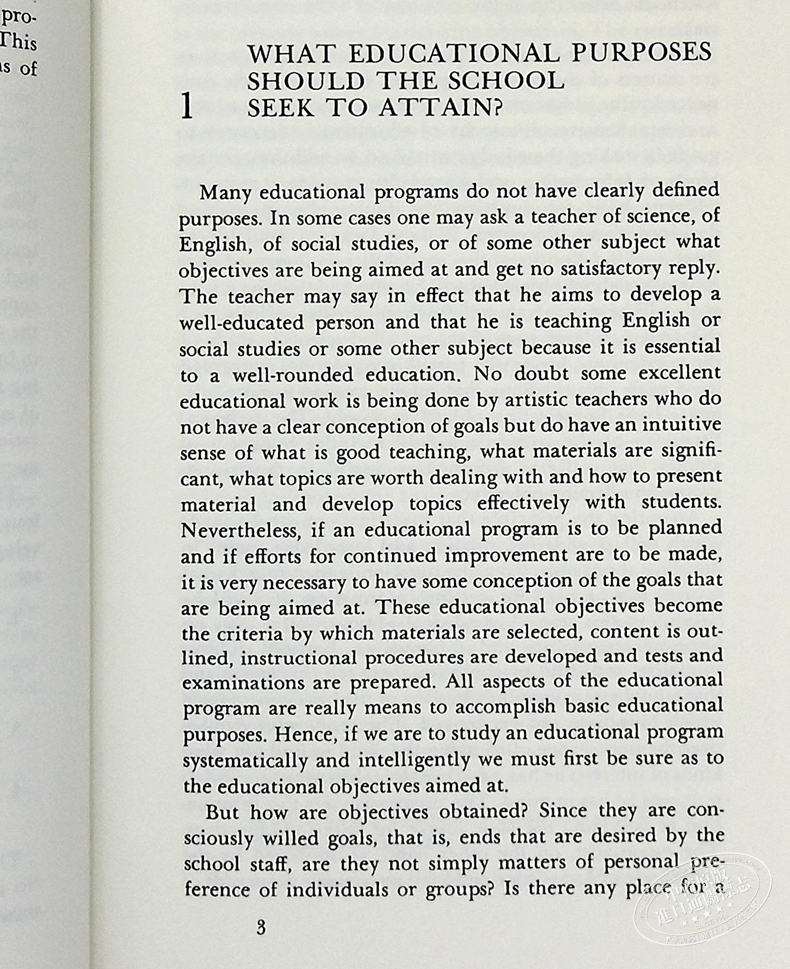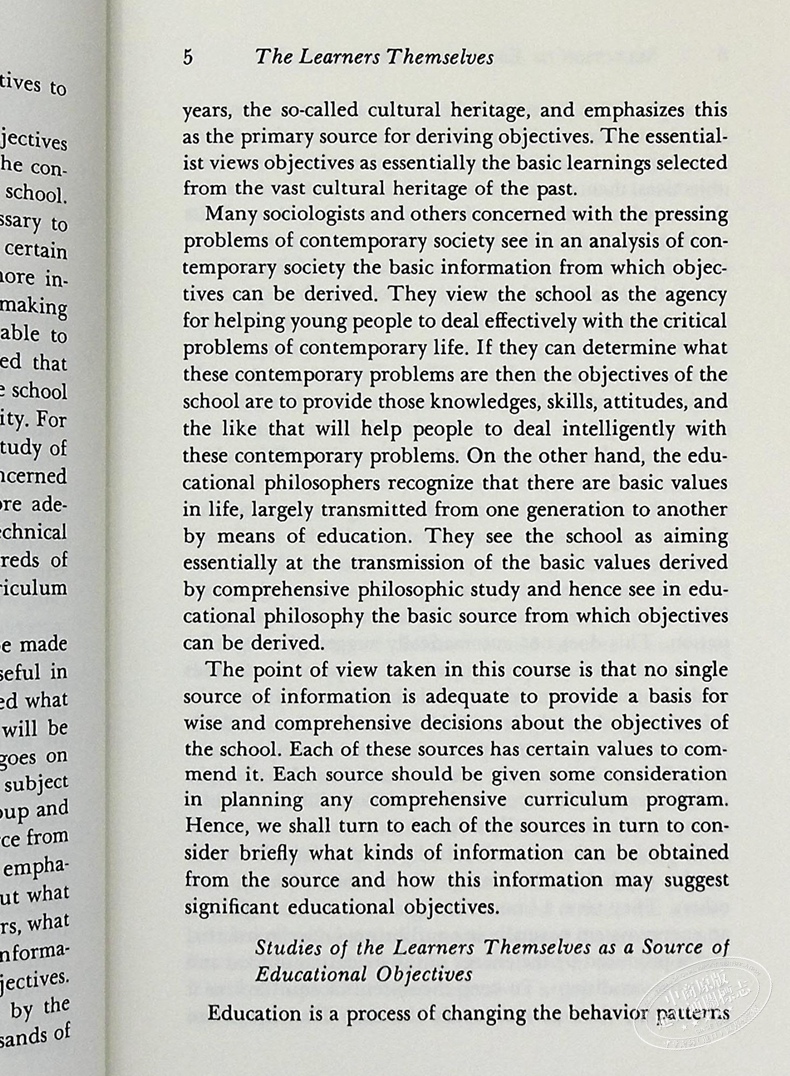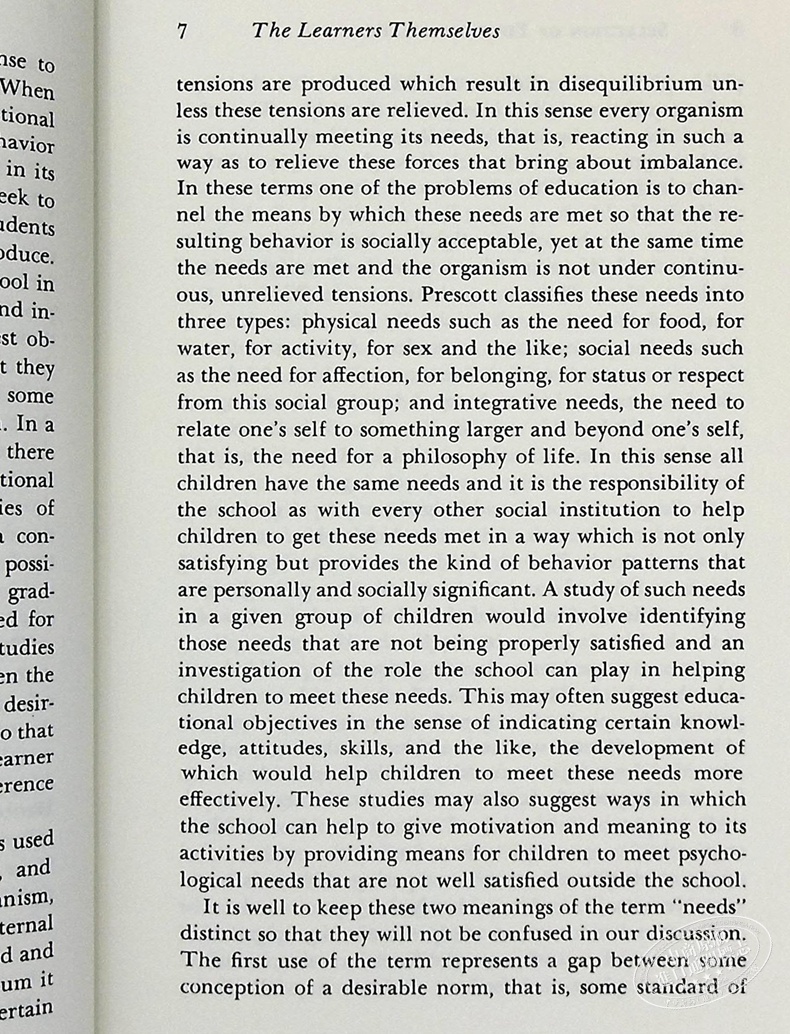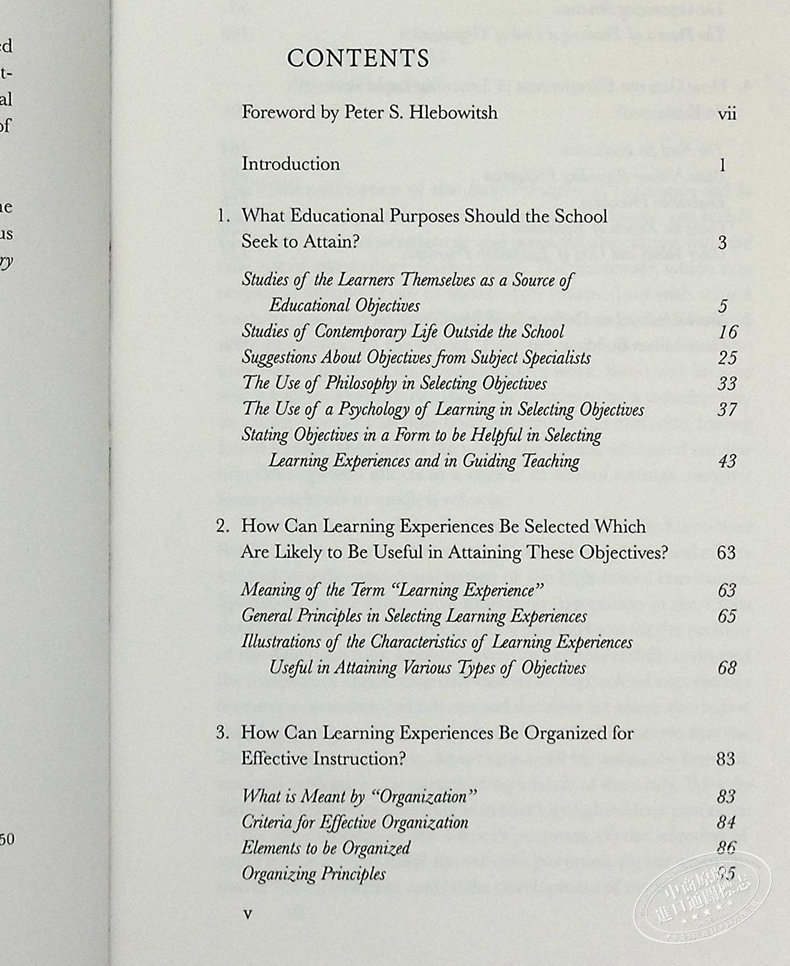Basic Principles of Curriculum and Instruction
基本信息
Format:Paperback / softback 144 pages
Publisher:The University of Chicago Press
Imprint:University of Chicago Press
Edition:First Edition, Revised ed.
ISBN:9780226086507
Published: 13 Sep 2013
Classifications:Curriculum planning & development
Readership:General (US: Trade)
Weight:198g
Dimensions:216 x 140 x 9 (mm)
Pub. Country:United States
頁面參數僅供參考,具體以實物為準
書籍簡介
1949年,一本小書對教育產生了重大影響。拉爾夫·w·泰勒(Ralph W. Tyler)僅用了100多頁就提出了一個概念:課程應該是動態的,是一個不斷評估和修改的項目。
課程一直被認為是靜態的、固定的程序,在一個專注於學生測試的時代,他提出了一個創新的想法,即教師和管理人員應該花和評估學生一樣多的時間來評估他們的計劃。從那時起,課程和教學的基本原則已經成為任何從事課程開發的人的標準參考。雖然這本書不是嚴格的指導手冊,但它展示了教育者如何批判性地對待課程規劃、研究進度以及在需要時進行調整。
它的四個部分集中在設定目標,選擇學習經驗,組織指導,和評估進展。學生們將會對如何制定教育目標以及如何分析和調整他們的計劃以使學生達到目標有一個明確的理解。泰勒還解釋説,課程規劃是一個連續的、循環的過程,是一種需要微調的教育手段。
60多年來,他一直把課程和教學的基本原則作為一個相關的、值得信賴的夥伴。由於全國各地的學區都在積極努力,使他們的課程與共同核心標準保持一致,泰勒的建議對教育工作者來説是可靠而有效的工具,他們致力於創建一套將國家目標與學生需求結合起來的課程。
In 1949, a small book had a big impact on education. In just over one hundred pages, Ralph W. Tyler presented the concept that curriculum should be dynamic, a program under constant evaluation and revision.
Curriculum had always been thought of as a static, set program, and in an era preoccupied with student testing, he offered the innovative idea that teachers and administrators should spend as much time evaluating their plans as they do assessing their students. Since then, Basic Principles of Curriculum and Instruction has been a standard reference for anyone working with curriculum development. Although not a strict how-to guide, the book shows how educators can critically approach curriculum planning, studying progress and retooling when needed.
Its four sections focus on setting objectives, selecting learning experiences, organizing instruction, and evaluating progress. Readers will come away with a firm understanding of how to formulate educational objectives and how to analyze and adjust their plans so that students meet the objectives. Tyler also explains that curriculum planning is a continuous, cyclical process, an instrument of education that needs to be fine-tuned.
This emphasis on thoughtful evaluation has kept Basic Principles of Curriculum and Instruction a relevant, trusted companion for over sixty years. And with school districts across the nation working feverishly to align their curriculum with Common Core standards, Tyler's straightforward recommendations are sound and effective tools for educators working to create a curriculum that integrates national objectives with their students' needs.
目錄
Introduction
1. What Educational Purposes Should the School Seek to Attain?
Studies of the Learners Themselves as a Source of Educational Objectives
Studies of Contemporary Life Outside the School
Suggestions About Objectives from Subject Specialists
The Use of Philosophy in Selecting Objectives
The Use of a Psychology of Learning in Selecting Objectives
Stating Objectives in a Form to be Helpful in Selecting Learning Experiences and in Guiding Teaching
2. How Can Learning Experiences Be Selected Which Are Likely to Be Useful in Attaining These Objectives?
Meaning of the Term “Learning Experience”
General Principles in Selecting Learning Experiences
Illustrations of the Characteristics of Learning Experiences Useful in Attaining Various Types of Objectives
3. How Can Learning Experiences Be Organized for Effective Instruction?
What is Meant by “Organization”
Criteria for Effective Organization
Elements to be Organized
Organizing Principles
The Organizing Structure
The Process of Planning a Unit of Organization
4. How Can the Effectiveness of Learning Experiences Be Evaluated?
The Need for Evaluation
Basic Notions Regarding Evaluation
Evaluation Procedures
Using the Results of Evaluation
Other Values and Uses of Evaluation Procedures
5. How a School or College Staff May Work on Curriculum Building
媒體推薦
“泰勒以一種與當代教育學生相關的方式闡述了教學的基本目的,並告訴他們學生與教師互動的質量是多麼重要和永恆。”——泰晤士高等教育
"Tyler addresses the essential purposes of teaching in a way that still has relevance for contemporary students of education, and communicates to them how important and timeless the quality of the pupil-teacher interaction actually is."― Times Higher Education
作者簡介
拉爾夫·w·泰勒(Ralph W. Tyler),芝加哥大學教育教授,社會科學部主任。他還擔任行為科學高級研究中心的創始主任,並擔任委員會主席,最終制定了國家教育進展評估。
Ralph W. Tyler (1902–94) was professor of education and dean of the Division of the Social Sciences at the University of Chicago. He also served as founding director of the Center for Advanced Study in the Behavioral Sciences and chaired the committee that eventually developed the National Assessment of Educational Progress. 



評論曬單